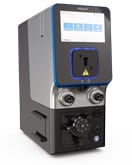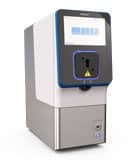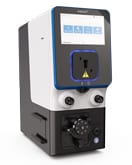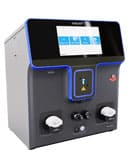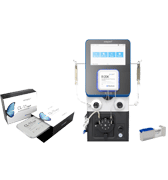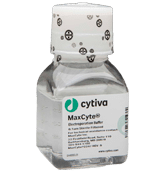Scientific Brief
CRISPR mRNA & RNP Delivery
Abstract: Non-viral Engineering Approaches for Creating TCR Knockout Cells and Expressing Synthetic T Cell Receptors
Manufacturing of CAR T cells from autologous patient cells continues to face a multitude of challenges which ultimately can limit the treatable patient population and lead to unpredictable and highly variable clinical outcomes. Researchers are looking to sophisticated gene editing to engineer potent CAR T cells that are resistant to the immunosuppressive tumor microenvironment, ultimately using a universal cell source derived from healthy human cells. In this poster we present data for the non-viral delivery of mRNA and CRISPR-Cas9 machinery using MaxCyte® Flow Electroporation® Technology for knockout of endogenous TCRs. We demonstrate high efficiency delivery with low primary cell toxicity at clinical-scale — all critical parameters for commercial production of quality, clinically-active genetically engineered cells.
Case Study

Optimization of CRISPR mRNA and RNP Delivery for TRAC Knockout
Cells were transfected with Cas9 mRNA and sgRNA targeting TRAC or CRISPR RNPs using the MaxCyte GTx® and the percentage of TRAC+ cells determined using flow cytometry 48- and 72-hours post electroporation. A) Jurkat cells were electroporated with various Cas9 mRNA:sgRNA ratios. B) Jurkat cells were electroporated with cas9:sgRNA RNPs at 1:1, 1:2 and 1:3 molar ratios. C) Primary activated T cells were electroporated using different energies using low or high RNP concentrations and the percentage of TRAC+ cells determined. TRAC knockout efficiencies were >90% using high electroporation energy and a high RNP concentration.
A. Cas9 mRNA = TRAC sgRNA

B. CRISPR RNPs

C. Primary T Cells: [RNP] vs Electroporation Energy

Summary
- Non-viral engineering enables rapid development of next-generation therapies — such as endogenous T cell receptor knockout or disruption of checkpoint inhibitors — with the benefit of simplified, more cost-effective manufacturing.
- MaxCyte Flow Electroporation Technology (co)delivers of a diversity of payloads including mRNA, sgRNA, RNPs, and plasmid & minicircle DNA providing flexibility for sophisticated, non-viral engineering including:
- Transient mRNA expression
- Nuclease-mediated gene editing (CRISPR, TALEN, ZFN)
- Transposon insertion (Sleeping Beauty, piggyBac®)
- MaxCyte clinical scalability and regulatory compliance provide for streamlined clinical translation of new therapies.
- The high efficiency and low toxicity of flow electroporation provide for strong expression of exogeneous genes such as CARs and/or high gene disruption frequencies that bolster therapeutic efficacy.
- Development and optimization of flow electroporation for new cell types and payloads is a rapid, straightforward process.
